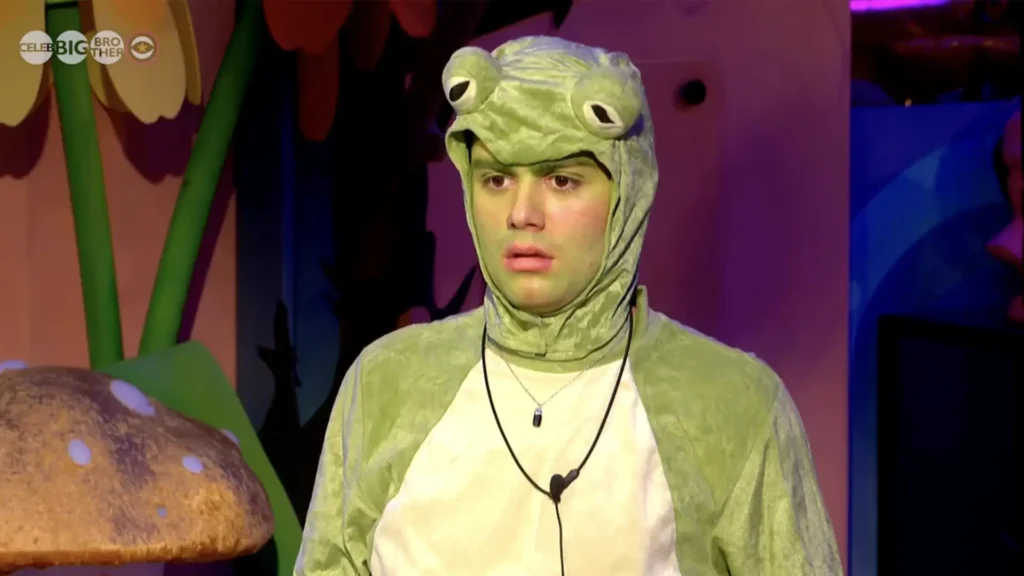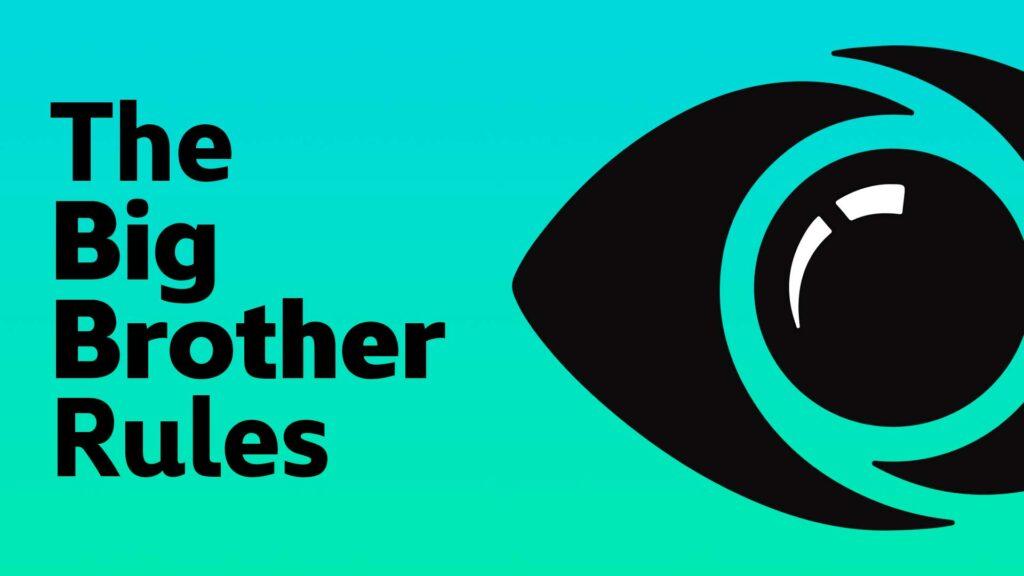Big Brother Australia – A Real Big (Brother) Problem
- Big Brother International
- January 28, 2022
- 56 minutes read

With the recent news that E4 have acquired the rights to the recent series of Big Brother Australia VIP (or Celebrity Big Brother Australia as it’s being billed over here), and the two new civilian series being made available on Paramount Plus in the US, I thought it was probably about time I stopped writing endless Twitter threads repeatedly discussing the problems with the recently revived Australian format and actually put it altogether in one place.
The UK and Australian versions of Big Brother are more similar than you may think. They both traditionally followed the same format of housemates nominating each week while the public voted for which housemates to save and/or evict. They’re also both on (or hopefully soon approaching!) their third version of the show, with Big Brother Australia originally running from 2001-2008 on Channel Ten, then being revived by Channel Nine with minimal format changes from 2012-2014, and finally their current adaptation on Channel Seven which has been on air since 2020. Comparatively, Big Brother UK ran from 2000-2010 on Channel 4 and was immediately picked up by Channel 5, running from 2011-2018, once again with minimal format changes. It’s worth noting that 24/7 live feed was dropped on the second incarnation in both countries so there’s no denying that they’ve followed similar patterns.
The current revival of Big Brother Australia is where the severe problems are so it’s no wonder that passionate fans are worried about the possibilities of a revival here in the UK that follows this format when the issues are so clear, yet don’t appear to be worked on and improved from series to series.
For those unfamiliar with the new format of Big Brother Australia, it’s sort of become a hybrid of their traditional UK-style format alongside the game-focused North American version. Elements such as shopping tasks, the ability to speak to Big Brother in the Diary Room and secret missions have remained, while the public vote has been dropped in favour of housemates voting each other out.
Housemates compete in competitions to win the power to nominate three of their fellow housemates for eviction and unlike the traditional format, nominations can be discussed, alliances can be made and strategies can be devised as fans of Big Brother US and Big Brother Canada are familiar with. Housemates then individually place their votes to evict in the Diary Room, with the housemate receiving the most votes being evicted, and there is now an eviction cycle every single episode instead of the usual one eviction per week format.
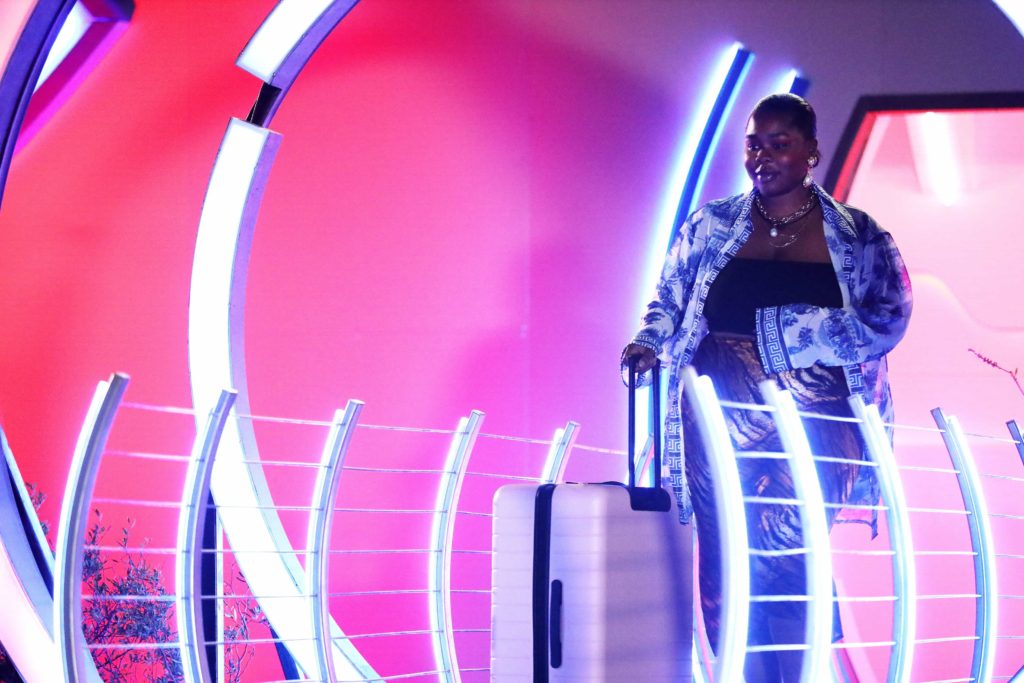
I will warn that this isn’t going to be a short read in the slightest but I really think it’s worth taking the time to break down the issues with the format and discuss why they don’t work.
So, a brief summary? On the surface, this is a show that looks great visually and is what you’d think a modern day Big Brother should be like and to the casual viewer, it probably is. The House, the style, the secret rooms, the fun looking secret tasks set by Big Brother – these are all things that when you sit down to watch one episode, there’s a chance you’d think this is great, classic Big Brother but this format has some deep-rooted problems that completely remove all sense of Big Brother for me.
Let’s start with the big issues…
Pre-Recording
The biggest problem lies here.
Since its revival in 2020, Big Brother Australia has become a pre-recorded show where the entire series has been filmed up to six months before the show has even made it to air, marking the first time that a full civilian series has been filmed in advance. Housemates live in the house together as we’d normally expect and vote each other out one-by-one until they reach the final three, at which point they leave the house and go back home to live their normal lives while they wait for the series to air. It’s then time for Australia to vote for their winner in a live finale at the end of the series – the only portion of the show that is live.
As far as I’m concerned, there’s not really any debate to be had with this point. Big Brother being a live show is one of its fundamental components and is exactly what sets it apart from the majority of reality TV. It’s a show that’s intended to play out in real time with viewers able to watch everything that’s going on (whether that be through live feeds or not… that’s another debate altogether!) as it happens, and not months after the fact. As a fan of the show, I don’t think there’s any feeling quite like knowing a huge event is happening in the Big Brother house at the same time as you’re watching it from your living room – it just lacks impact when you know all is said and done by the time you get to see what’s gone down.
In years gone by, there’d be such a massive fanfare in the build up to and during a series but the fact it’s not live has caused a distinct lack of hype and buzz both online and in regards to press attention which leaves a final product devoid of much atmosphere at all when Big Brother is a show that’s just as much about the overall experience as it is the actual show.
To make matters even worse, the recent VIP series took this to the next level by also pre-recording the finale. This meant that three different versions of the final results were filmed with each of the three finalists having their “winning moment” and reaction. When it came to the finale, fans voted as they normally would and the correct ending was then played depending on who Australia voted for.
This is the ultimate reality TV sin for me and one that’s becoming far too common in Australian reality TV, particularly on Channel Seven shows, with them also having done this on The Voice and Australia’s Got Talent in the past.
Viewers have spent however many weeks or months watching these housemates living together and fighting to win, only to be robbed of any form of genuine reaction in the moment that matters. What’s the point of investing your time in an entire series when the only way to see the housemates react to winning or losing money for them/their charity is by going onto Instagram and hoping they’ve uploaded a video of them watching the episode live to see which ending is played? It’s unknown whether the next series has also had their finale pre-recorded too or whether this was just a COVID measure as this series was filmed during a time of harsh COVID restrictions in Australia, but even if that was the reason, there are other ways they could’ve gone about it without faking the ending.
Back to the pre-recorded issue as a whole and it’s no surprise that Channel Seven decided to film this in advance because I think it’s been quite clear from the off that it wasn’t Big Brother that they wanted at all – it was Survivor which is a big performer for rival station, Ten (coincidentally Big Brother’s original home).

For those unfamiliar, the basic format of Survivor is that strangers are put together on an island and must compete in physical and mental challenges for rewards while voting each other out every single episode. A pre-recorded show with the contestants themselves ultimately voting for the winner at the end based on the strategic games of each player… starting to sound at least slightly familiar? Soon after the Big Brother reboot was announced by Seven, it was heard from insiders that the channel was looking for it to be “Survivor in a Warehouse” and it won’t come as any surprise to learn that the Executive Producer for this revival has been none other than former EP of Survivor, Amelia Fisk.
This is now a programme that’s essentially Big Brother in name only, intending to grab viewers in initially through the name it’s made for itself over the last two decades.
This isn’t Big Brother.
Having not been on air since 2002 over here in the UK, Survivor is more than up for grabs and I think all Big Brother fans would urge broadcasters to commission Survivor if that’s the show they really want rather than decimating this one.
I’m far from an expert in this field so I could be completely wrong and it’s just my opinion but I also personally feel that with mental health and after care in reality TV being such an important issue and discussion point over the last few years, the impact of a pre-recorded Big Brother is also something to consider. From the outside looking in, it’d appear to me that it’s actually a lot tougher on the housemates participating in these pre-recorded shows as they’ve got the ability to see what the public think of them as it’s happening.
Public opinion is always going to be much more passionate and loud when something first happens and housemates wouldn’t ordinarily be privy to this as they’re locked away in a house with minimal contact to the outside world. By the time they’re evicted from the house, most viewers won’t remember that terrible thing they said or did three weeks ago as clearly and they certainly wouldn’t be as heated about it at that point as they’ve done twenty great things since. Whether we like it or not, audiences tend to have short memories. With housemates sitting at home and scrolling through social media while the episodes are airing, they’re able to receive the full force of these opinions through tweets, comments and messages at both extremes – the hate and love.
One the other hand, there’s the opposing argument that the traditional live format is difficult as you’re hit with everything you’ve done in the past however many weeks/months at once but I’d personally prefer that general overview than seeing the opinions of every minute detail. I don’t think there’s particularly a “right” answer to this and after care is something that must be provided whichever way it’s done, I just think this is something important to consider.
Another huge problem with pre-recording a show like Big Brother is spoilers and this has been a massive problem in every series that aired so far.
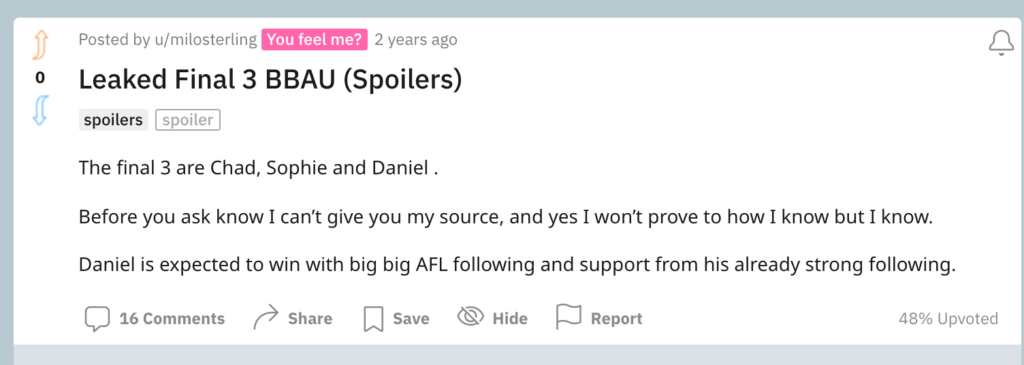
Leaks of the final three housemates have sometimes come as early as mere days after filming and have been available to find online. One of the best parts of being a Big Brother fan is the online community where you can discuss every single detail with other like-minded fans but when there are such major spoilers out there, I know firsthand that some don’t get involved with this now in fear of having the whole series spoiled for them.
We could be generous and say that the leaks are out of their control but they’re unfortunately not the only spoiler-related problem as the pre-series promotional techniques love to go heavy with the spoilers. Trailers for each series have been filled with spoilers, including wall-to-wall footage of housemates in the house, showing which housemates are competing in certain challenges and tasks so fans that pick these trailers apart are fully aware that someone won’t be evicted until we’ve seen that moment air. Extreme lack of footage of certain housemates has made it obvious who the early evictees are and they’ve even gone as far as spoiling the moment a housemate is fake evicted which removes all shock factor.
Most housemates are revealed pre-series too (but not all – only the handpicked favourites!) with lengthy promo videos which I personally think is fine if they were to showcase who they are as people and what they and their life are like outside of the house in the real world. However they seem to have very little confidence in their own casting because instead of using this time for us to learn about their backgrounds, it’s used to show even more of their upcoming time in the house.
The worst example of this was the recent 2021 civilian series where Brenton’s identity, who would later be revealed to be an intruder housemate, was officially released online alongside all of this footage on 23rd March. The series itself didn’t start airing until 26th April and Brenton himself didn’t even arrive until episode 12 (that’s Day 27 in the house) on 17th May. The audience knew about this man nearly two whole months before we’d see him in the house and that initial footage completely spoiled that he’d be involved in a showmance when he was in the house – producers must think there’s no way that would viewers would want to tune in themselves and watch this relationship develop naturally.
I’m fully aware that audience viewing habits have changed and new methods of promotion are necessary but when these shows aired as live, teasers were more than enough to effectively promote so there must still be a way to do this without spoiling everything completely and ruining viewer’s enjoyment.
The Editing
In the three series that have aired so far, there’s been a strong sense of producer manipulation in the edit and carrying on from the previous point, a lot of these problems lie with the fact that it’s a pre-recorded show. UK fans will definitely be familiar with the phrase “Who Goes? You Decide!” and it’s not been too dissimilar since the 2020 revival, with them now using the phrase “Who Wins? You Decide!” at the start of each episode. But if you really think about it, do we decide? In my opinion, we’re not really deciding at all… they’re just trying their best to make us think we decide. The edit debate is hardly a new thing and is probably just as old as reality TV itself but when the entire show is pre-recorded, it just brings a whole other layer to the debate.
Fans will always complain when they don’t think their favourites have been shown enough, fairly, or in the right light and housemates will always try to use the edit as an excuse for their actions. At the end of the day, I normally fall on the side of if you don’t say or do it, they can’t show it. In the original run when fans had full access to 24 hour live feeds, we really were able to see every side to a person – their highs, lows, arguments and their more vulnerable moments. As years went by, we lost access to the live feeds and only had the daily edited highlights to go by and trust that producers and editors would show us an honest depiction of the day’s events and portray each housemate accurately.

Fans would, of course always argue that producers had their favourite housemates and would give them plenty of time in each episode but at the end of the day, as each episode is edited, they have no idea what’s going to happen next. They don’t know if they’re going to be nominated or evicted in the next week, they don’t know who they’re going to clash with, bond with, or anything of the sort.
When it comes to the entire show being filmed in advance, producers know exactly what’s ahead for the entire run when putting the edit together – they know which three housemates that Australia have to vote between to choose their winner, they know who ends up in a showmance with who, and they know who the early evictees are.
Producers may claim in interviews that the pre-recorded format allows them to create a “slicker and more polished show” instead of constantly rushing with a 24 hour turnaround but I disagree, it creates a biased show that’s edited based on the upcoming events rather than what’s happening in the moment, and that’s not Big Brother.
It’s no surprise at all when you look at the winners of the first two civilian series in this format and see that two nice guys ended up winning who had emotional backstories that the producers made sure to display in the few episodes leading up to the finale – was anybody shocked that viewers decided to vote this way? From the edits of those series alone, I think it was pretty clear who the producers were backing. Compared to their fellow finalists, they were pretty much shown in a positive light for the entire duration and while we obviously have no way of knowing for definite, they surely must have at least a few flaws or negative traits as people and housemates. Is it more so that producers don’t want a “bad” winner to reflect on their series and show? Quite possibly.
Ultimately, I don’t think the journey of a housemate should be marked out from the very first episode. We’re watching reality TV, not a scripted drama with characters, and the edit should follow the rise and fall of the housemates as they happen without knowing where they’re going to go next.
Another problem with the edit of this show is that the episodes seem to be treated as separate entities that end up making each individual episode feel like their own disconnected game, rather than one cohesive narrative.
There’s rarely a continuation from one episode to the next, so even if an episode ends on a huge bombshell from one housemate or there’s a blindside that shocks half the house, it usually doesn’t carry over to the edit of the next episode.
Creating these standalone episodes just makes you feel that it doesn’t matter if you miss an episode because you can just skip straight to the next one and the only thing that’ll be different is one housemate will be missing. Considering the producers know exactly what’s coming next when it’s time for them to edit the episodes, I still don’t understand why they do this.
The Hybrid Format
Again, this pretty much follows on from the editing problems but two series in (three if you include the short VIP series) and the hybrid of merging the traditional UK/Australian format with the North American format still hasn’t worked. That’s not to say I don’t think it can work because I really think it could be the best of both worlds if it’s done well but the editing just hasn’t got it there.
Without fail, every single episode follows the same format. The first half is the format that Australians are used to – there’s a shopping task or secret mission, some general chat amongst the housemates or maybe some sort of drama related to food, mess, or whatever the current house problems are and then someone seems to flick a switch and the second half of the episode switches immediately to the North American format.

We see the conversations that housemates are having change to game-related topics instead about who they need to target for eviction next, then we dive right into a nominations challenge, followed by that winner then nominating in the Diary Room. After these nominees are announced, we get the segment(s) of them fighting to stay and/or other housemates devising a plan for everyone to follow, before everyone finally moves to the Eviction Room.
Here, Sonia Kruger talks to the housemates in an attempt to delve into what’s going on in the house and stir up some trouble by asking some questions about the current situation – some might call this a Survivor Tribal Council! Housemates then vote to evict in the Diary Room and Sonia announces the result to the house. Rinse, repeat, exact same thing in the next episode.
It’s essentially watching two separate versions of the same show tacked together that don’t flow and in trying to please everybody, they’ve ended up pleasing nobody at all. The gameplay and strategic element is too poor to be considered a strong Big Brother US series, the human interaction isn’t shown enough to be considered a strong UK-style series, and the humour from Big Brother himself isn’t enough to be considered a strong Big Brother Australia series. They’ve ended up with weak versions of them all, resulting in this poor end product that doesn’t know what it wants to be and the show suffers with an identity issue because of it.
There’s one of two ways we got to this point. The first is that Seven really did just want their own version of Survivor so decided to use Big Brother to get it while keeping some elements of the original format such as voting for the winner to please older fans and that’s why we’ve ended up with a poor imitation of Big Brother that’s been billed as “Survivor in a Warehouse”. The alternative is that Big Brother is actually what Seven wanted all along but insisted on pre-recording it (like a lot of shows on Seven’s network) in order to keep costs down and save money.
By doing that, they were forced to welcome the strategy into the game that we see in North America due to it not being possible to have the public voting on a pre-recorded show, and that’s why the strategic elements and game mechanics are so flawed. It’d make sense why it feels like this is all tacked onto the final third of each episode after they’ve had the majority of the episode spent on more of the old school fun of the show.
Regardless, this strange hybrid that I’ve described in the past as a superfan’s fanfiction of merging all of their favourite existing formats together into one doesn’t work in reality like you think it would on paper.
If they insisted on pre-recording the show (which I’m not condoning for a second!), there were ways to do it without needing a public vote or leaning heavily on strategy. There have been many different ideas suggested over the past few years but one of which is that it could mostly follow the original format where each housemate nominates as normal but the nominees later compete in a competition to stay in the show. This means they wouldn’t need to include strategy in the show which they don’t seem too keen on doing anyway and they’d still be able to (stupidly) pre-record it. That’s just one idea to improve the show by giving it one clear format but there are so many other possibilities that don’t leave the show in this weird middleground!
The Speed
One of the key-talking points from producers and fans alike when this new format was first announced was that there’d now be an eviction every single episode (although I’d put an asterisk there!) and gone are the days where we’d traditionally have one eviction per week. Like a lot of things with this revival, I don’t actually think this is a bad thing on paper because as I’ve said several times already, viewing habits have changed and audiences definitely like things to be a lot snappier with less filler now and they like to see instant results rather than waiting around. This means it’s probably a smart decision to speed up the eviction cycle so that it’s not being dragged out over a whole week now but with an eviction cycle every single episode which typically covers two days of house action, it’s too much.
The eviction cycle being sped up doesn’t give the show the room it needs to breathe and it leaves us with such little time to get to know the housemates which is one of my biggest complaints overall.
For me, Big Brother lives or dies by its housemates so if the casting is poor, the show is poor and that won’t change no matter how many fantastic twists, tasks and competitions are thrown at them. Whether the casting has been effective or not is another debate altogether and isn’t something I’ll be mentioning here because that’s not a problem with this format specifically and could happen with any version of the show but if they don’t allow us time to get to know the housemates, it doesn’t really matter how good the casting is anyway.
No matter if you prefer watching housemates playing the game or just living together in a house, you can’t connect with them as a viewer if we’re not given ample opportunity to learn about them as people. Viewers watch Big Brother because they’re interested to get to know these strangers and see how they react to living in this strange environment – they want to be able to relate to someone, they want to love someone, they want to hate someone. In all the series that have aired so far, I barely have any opinions on most of the housemates that have featured because I still don’t know them despite watching them on TV for months.
There was a time when, as viewers, we’d know everything there was to possibly know about our housemates. We’d know what makes them tick, what makes them angry, what makes them happy, what makes them sad, what they like and dislike, what their job was, if they were single, if they had kids – there wasn’t much we didn’t know! There are very few Big Brother Australia housemates since 2020 that I could answer these questions about and I’d be shocked if many other people could too, nor could I tell you about many of the friendships, rivalries or relationships formed in the house or why they bonded/fell out.
When the edit is trying to be so many different things and formats at once, it’s failing to give us this basic information and another big cause is the number of housemates that are thrown at us. The 2020 and 2021 civilian series had 20 and 26 housemates respectively, meaning that we’ve had a whopping 46 housemates in the space of two years, and it’s just not feasible for a show to be able to cover that many personalities when it’s trying to be so many other things. Quantity doesn’t equal quality.
When you go back and watch a week of episodes from Big Brother’s original run, the difference is staggering. The pace is undoubtedly a lot slower which would be a lot harder for an audience to swallow today but the actual content that’s given to us is miles ahead of what we get today. Bear with me for some quick maths…
On Channel Ten, daily highlight shows would typically be 22 minutes long and run from Sunday-Friday, putting the total weekly airtime for this footage at 132 minutes. Episode lengths vary on Channel Seven now but I’d say they probably average at 70 minutes with 3 episodes per week, giving a weekly total of 210 minutes. This isn’t a direct comparison because the runtime for Seven includes format points like nominations and evictions whereas they’d originally be on a separate show back in the 00s, but for the show to now have an additional 80 minutes per week but still give us less content on the housemates is mind- boggling to me.
The Repetition
The best way I’ve been able to describe this show so far is “if you’ve seen one, you’ve seen them all” and that’s something that non-Big Brother fans have probably been saying for years, but when it comes to this version it’s now sadly true.
Every episode and every series feel like some sort of Groundhog Day and you’re just watching the exact same events play out with (slightly) different faces.
I won’t ironically start repeating myself here because some of these points have been covered already but the exact same format playing out each episode in regards to tasks and strategy becomes extremely tiresome to watch. It’s just the same events every episode with no break to mix things up while in comparison on Big Brother US (that show might be stale but the basic format is still superior!), the eviction cycle is still one per week and gives them time to do this. It follows the three episode per week format where the first is the HOH competition and nominations, the second is the Power of Veto competition, and the third covers the eviction. Therefore an entire week goes by before you reach the same style of episode again and breaks up the monotony of it all.
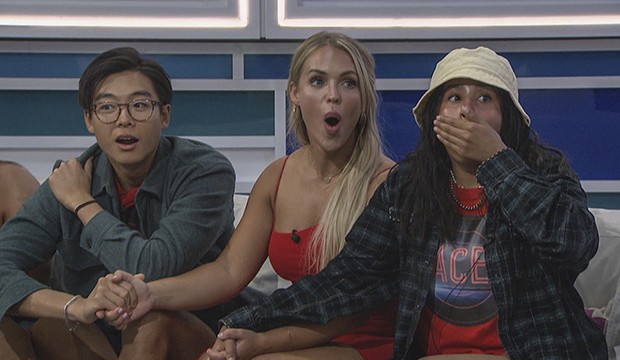
Something as simple as splitting an eviction cycle over two episodes could break this up so that the competition for power and nominations are on one episode, with the eviction and build up to it in the next. At the same time, more breathing space in each episode also gives room for more normal conversations which helps to fix the issue of the audience not getting to know the housemates.
The repetition doesn’t stop there though!
The challenges that the housemates compete in for power are all incredibly similar so they just merge into one in your mind when they’re all involving some variation of balancing, throwing a ball, or holding onto something. The shopping tasks each week seem to follow the same sort of pattern of an alarm sounding for housemates to either run to a certain point, catch something or turn something off and the same ones were then used again for the following series. The reward for the smaller and more basic tasks is also often the same every single time too – KFC! I understand this was their main sponsor but it could’ve been utilised in other ways so that we didn’t have to sit through the same thing time after time.
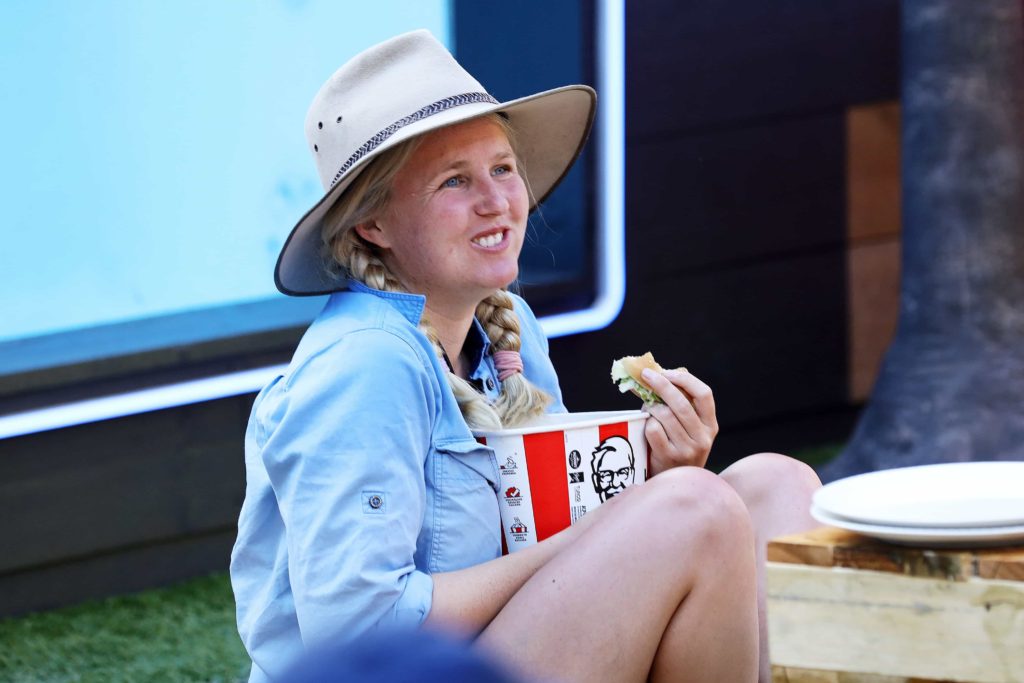
The same storylines have been played out in every series too and there’s no way that a show with only two civilian and one celebrity series under its belt should be feeling stale already. One example is that series 12 saw a housemate with a deep love for tea who was willing to go to any length to get some and then series 13 saw the exact same thing play out with a different housemate saying the same things but for coffee instead! Housemates starving on basic items such as tuna and spinach is another example of this and I’d have to go back to compare but I’m pretty sure the VIP series had an identical moment to the previous civilian series where housemates were endlessly complaining about it so much that it sounded like the exact same things were being said, just with different faces and voices.
I’ve not even started on fake evictions yet but the twists in each series are just the same ones being repeated, albeit under slightly different guises. The series 12 bunker became the attic in series 13, the White Room became the Glass Room, the series 13 tunnel became the VIP bookcase. It’s all just the same. With the latter, one housemate escaping through a bookcase to save himself from eviction in the VIP series was billed as a huge monumental twist, despite the audience having watched the exact same scenario less than six months prior with one housemate doing the same through a tunnel instead.
A lot of these things look great visually but it just shows a lack of overall creativity when you’re watching the same thing over and over again when the producers should be doing things to keep the show fresh.
The Game Flaws
If, like the producers, you have very little interest in the strategic side of the show then I’d recommend you skip this section entirely. There are so many problems with the game mechanics that make this format hard to watch and follow as a viewer, and just as difficult to combat as a player.
It’s hard for me to decide which aspect is the biggest issue but this is certainly the one that annoys me the most. At the end of each episode when housemates go into the Diary Room to cast their vote to evict, instead of the episode showing us these votes, they edit around them so that we don’t actually know who most of the housemates have voted for. Instead, we get a few minutes of shots of housemates walking to the Diary Room looking nervous with generic lines such as “for those reasons I want to vote for him” which, if nothing else, is just an incredible waste of valuable airtime that could be used for something else.
If you’re now making your audience watch a strategic game, you have to allow them to follow along with the strategy and this just isn’t possible when you don’t show the votes or even much of the gaming that happened beforehand to get to this point. A housemate’s vote to evict is their only true power in this game and is the easiest way to see where they stand and who they’re aligned with so by not giving us this information there and then, it just leaves viewers in the dark.
I understand why they’ve chosen to do this from a drama perspective as it keeps the suspense there right until the final moments when Sonia reveals the result but it doesn’t work when you’ve brought strategy into the game now. It helps us understand the players and their motives by knowing this information and if the show did an adequate job of making us engage with the housemates on a personal level, we’d care to stick around for the result regardless.
They do upload an “Extended Vote” clip to the channel’s catchup and demand service, 7Plus, after the episode has aired but I don’t think that’s good enough. How many people are going out their way to check this after the fact and why should they have to? It’s something that should be shown in the moment or, at the very least, put over the end credits of the episode. If the reason is to drive viewers to 7Plus to boost numbers there, they could show the votes in the episode and later upload a full extended cut that includes the explanations later.
Suspense isn’t the only reason why I think they leave the votes out of the edit though, it’s also because they love to blindside the audience for shock value and the immediate gasp. On several occasions, the edit has led the audience to believe that someone was about to be evicted by showing certain conversations and moments, for us to then later be completely blindsided when Sonia reveals that someone else has actually been evicted instead. No reasoning for this is ever given so it just means that we’re missing out on the entire narrative while being fed this false alternative. Aren’t we supposed to be seeing everything as a viewer? I don’t want to be sitting at home and scratching my head trying to work out why my favourite housemate has been evicted after investing time in them for several weeks – I want to know what they did wrong and what ultimately caused their demise.
The fun of a blindside as a viewer is that we’re in on it too! We know how we’ve reached that point and it’s exciting to see the house secretly plot against this individual or group and build up to the moment where their jaws drop at the eviction. I don’t want my jaw to be dropping instead.
Another big problem is that more often than not, this is a game where the same type of people will end up winning in the end, and that’s not fun to watch as a viewer or fun for the other types of housemates to play. At the end of the day, it’s highly unlikely that you’ll succeed if you’re not a physical person because in the three series that have aired, pretty much every single competition for nomination power has been extremely physical. That’s not to say that everything should come down to competitions because it shouldn’t – this game is just as much, if not more, about your social skills and strategic abilities as it is your capability to win a competition.
When you diversify your competitions so that you don’t have to be extremely physical to win them, this means that it’s possible for anyone to win any competition at any given time which opens up so many doors in the game. What’s more exciting than the idea of absolutely anything being able to happen? Giving every single player the chance to win a competition and earn some power in the game allows the power to shift from person to person without the same few people dominating all of the time. It also opens up the door for casting so much more because you’re not required to cast a majority of people who are able to play in these competitions. Mental competitions in the form of puzzles or questions can be just as compelling as the huge set pieces that are used for the current physical challenges.
With the hybrid format that Australia have created, it means that the public still get to vote for the winner at the end and this is just another example of the merged formats not working as one. Are the audience supposed to be voting for who played the best game or who they enjoyed watching the most? That won’t be the same person most of the time and it’s unlikely that the audience will really vote based on strategy. With too much producer manipulation in the edit really deciding the winner, this is a format that needs a jury of housemates to make the final decision.
Another example of the producers and format not really caring for the strategic game are that the constant stream of fake evictions really stifle the gameplay in that because they happen so often, it reduces the chances of housemates wanting to make big moves in the game. When there’s a greater risk of the housemate you’re targeting actually ending up being saved, there’s less incentive to do it.
There’s nothing wrong with keeping housemates on their toes but when things like this happen so often, it doesn’t allow for a proper game to be played, and just seems to me that the “TV moment” of a ladder lowering from the ceiling to save a housemate is prioritised instead. Something as small as the housemate that wins the power to nominate having to go immediately to the Diary Room to nominate instead of getting the chance to talk to their alliance and strategise in order to work out their best move also shows to me that this just isn’t something they want to see.
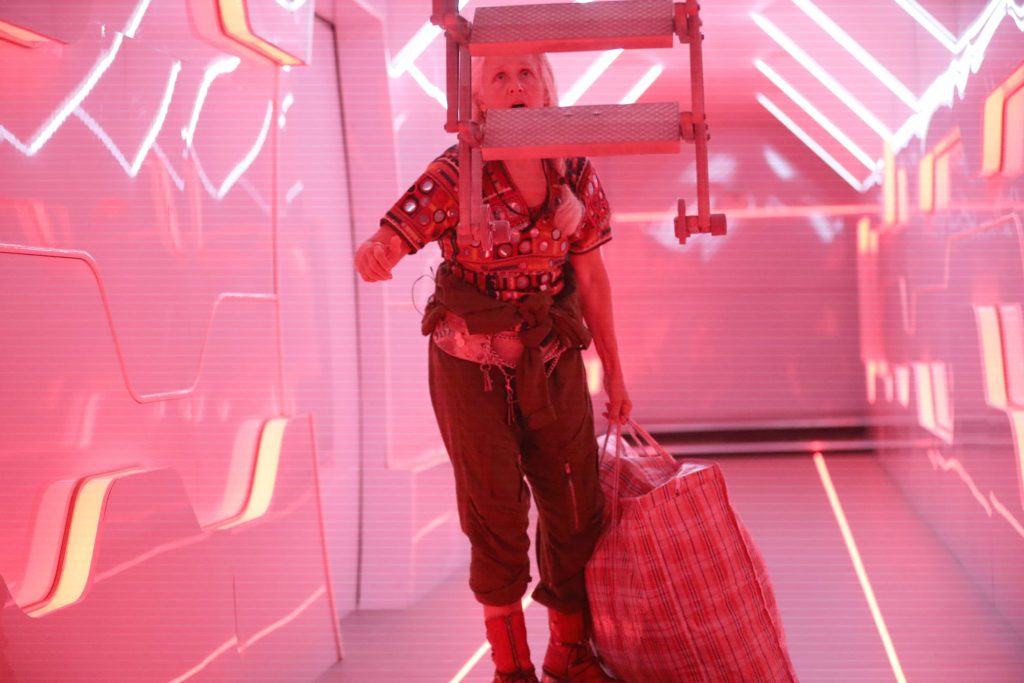
The lack of Power of Veto is also an extremely odd choice given that once Big Brother US changed to their strategic format, they soon realised that giving housemates the chance to save themselves from eviction was necessary in order to not minimise the gameplay. Big Brother UK has even seen several examples of a “Save and Replace” format over the years, including the Gamechanger competition in their final series where someone could be saved from eviction.
Producer Manipulation
Onto the final point here and I’ve saved some of the worst decisions till last. There’s nothing worse in Big Brother than blatant manipulation and favouritism towards production favourites when they decide to risk it all and bend the format and rules in order to save their self-appointed star(s). We’ve seen it in the UK with the likes of Helen Wood and Stephen Bear with them either being awarded immunity or warning after warning was thrown at them for bad behaviour with no apparent consequences.
Big Brother Australia has stumbled across a different method to save their favourites though – fake evictions. In three series now, there have been countless times where a clear favourite has been evicted (multiple times in some cases!) and a mysterious secret room is suddenly unveiled while they’re heading towards the door with no evidence that this was planned all along, no matter who was evicted that night. Once is a fun twist, twice is maybe a coincidence, but three times or more? That’s just blatant manipulation.
Whether the secret room be a bunker, an attic, a tunnel or whatever else, these chosen housemates are lauded by Big Brother with perk after perk and typically get to wreak some sort of control over the house. These could be something as basic as setting cruel tasks for housemates as revenge or something as extreme as getting to listen in on what’s happening in the house and Diary Room, all the while usually receiving immunity from the eviction cycle currently in process. Then just like that, they’re back in the house as normal!
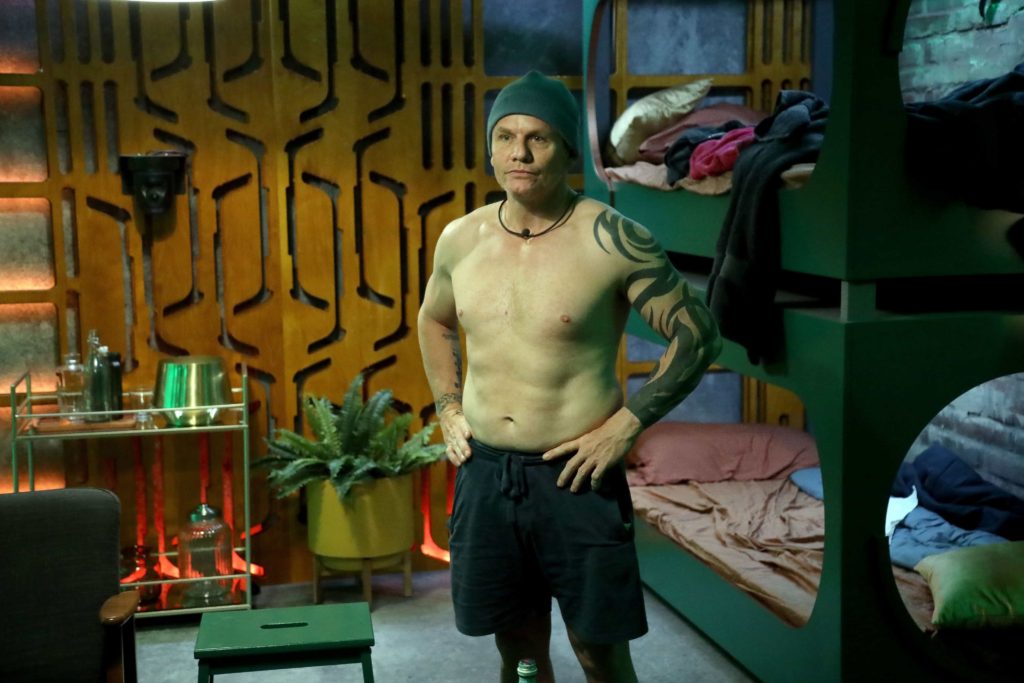
At best, I can say that it’s just boring to watch as a viewer because you’ve sat through an hour of TV and when that person is about to be evicted, they’re miraculously saved by a production decision and you’ve just wasted an hour as nothing has changed at all. At worst, it’s pure manipulation of the game. Not quite the promise of an eviction every single episode either, is it? Maybe I should be grateful for that and the speed slowing down but there was still a competition, nominations and campaigning to get to this point which was all for nothing when that time could’ve been used to show actual developments in the house.
A lack of consistency is a terrible thing for a show like Big Brother which is something that UK fans quickly discovered after Channel 5’s version of the show chipped away at the format week after week with twists on nominations and evictions so much that it became a surprise to see an ordinary week of Diary Room nominations play out – something that’s starting to sound familiar when it comes to having evictions that don’t end up in a secret room.
Now onto possibly the worst thing that you could do in my eyes and that’s lie to your audience – something that was done in the recent VIP series. If you’ve gotten this far and you’re still choosing to watch when it airs on E4 for some unknown reason, I warn you that I will be covering spoilers from that series!
Quite a lot of people were surprised when it was revealed that Caitlyn Jenner was one of the celebrities that signed up to the series considering she was in the midst of a political campaign in California and would be voluntarily locking herself away in the Big Brother House for up to 22 days (on top of another two weeks beforehand due to COVID for hotel quarantine which was compulsory upon entry into Australia). The catch? She signed a contract that meant she’d only be in the house for a week.
There’s nothing wrong with having Caitlyn in the house for a week so that both her and the show receive some public attention if that’s the direction they want to go in – we’ve seen it before with the likes of Pamela Anderson where they stay in the house for a short period to generate some headlines.
The difference this time though is that they pretended that Caitlyn was just an ordinary housemate and constructed an entire situation for her to be evicted when her contract ended. Big Brother decided to suddenly drop a surprise flash eviction on his celebrity housemates when they were all stuck in a “lift” and the only way for them to get out was to unanimously come to the decision to evict one of their own.
The housemates took turns stating why they think they shouldn’t be evicted and as luck would have it, on day 8 of her stay, Caitlyn told her fellow housemates that she was willing to sacrifice herself as she has things that need to be taken care of back in California. Caitlyn then leaves the house after being evicted the hero and the audience are led to believe that this all occurred naturally despite it all being set up from the very start.
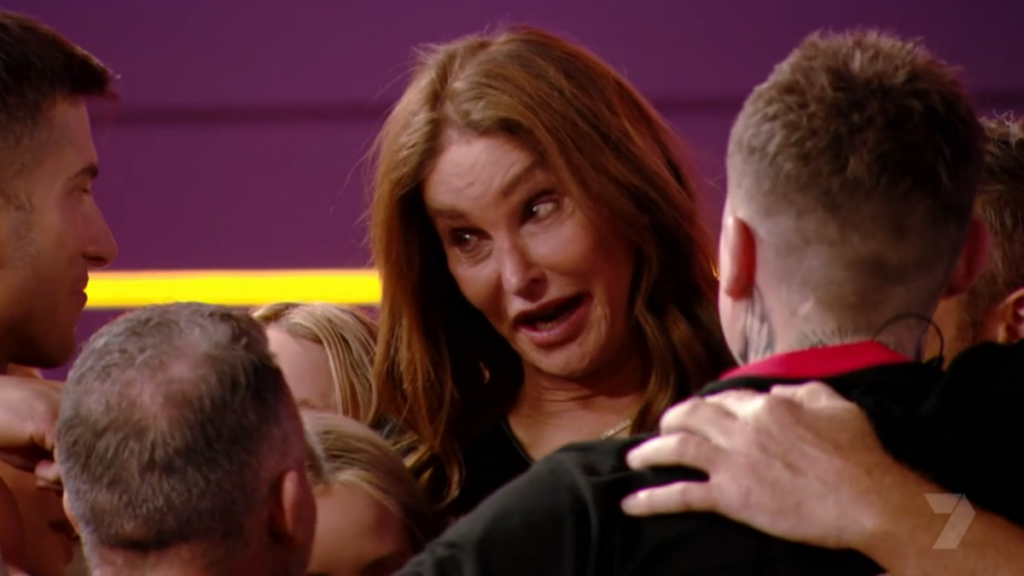
It doesn’t get worse than that but we’re not done there! In the same series, it seems quite clear to me that the producers were playing around with the timeline of events.
They showed there was an eviction on Day 6 in the house and then the edit moved onto Day 8, with housemates consoling the housemate whose friend had just been evicted as if it was only the next day. So what happened to the events of Day 7? Either we didn’t get to see anything at all or it later skips back to Day 7 footage while they pretend that it’s Day 8. Thomas Markle, brother of Meghan Markle, was shown speaking to Big Brother in the Diary Room about his sister and is reminded that it was her birthday yesterday which, as we know the dates of when filming started, didn’t match with the day they were stating it as.
Of course that’s a mostly harmless example, especially in comparison to the previously mentioned situation with Caitlyn Jenner, but it does make you think about what else is being hidden or changed without us knowing such as one housemate’s changing facial hair clearly from weeks apart and the magical vent. That’s not even mentioning the fake audience the show pretended was in the garden with the housemates during the VIP finale – I didn’t think they were actually trying to convince us the audience was there until they started having the finalists wave to what would’ve been where the crowd were.
The Future?
The upcoming series has already been filmed so it’ll be interesting to see if they’ve made any changes to the format but I’m not expecting any improvements at this point because they seem set on the way they run things and for whatever reason believe it’s a success. At the very least, with half the housemates set to feature in this series being All Stars from the first eleven series, it’ll be a nice boost of nostalgia to try papering over the cracks and overpower the issues I have with this new show!
In regards to a possible UK revival at some point in the near future, time will tell if that’s going to happen or not but I truly hope they fully analyse the good and bad of this format before jumping into replicating it over here. It’s easy to dismiss heavy criticism like this as just moaning because they want the old Big Brother back and they don’t like change but for me personally, that’s really not the case. This is a show that I love (both North-American and original UK/Australian formats!) and it’d be stupid of me to think the same show that worked in 2002 could work exactly the same in 2022 because it wouldn’t. This’ll be the third attempt at Big Brother UK next so there has to be a change from what we’ve seen already, while at the same time not forgetting its roots and staying familiar to the show that people fell in love with the first time, and I think we saw a really interesting glimpse of that in the final series in 2018. Decisions that end up alienating its audience such as pre-recording automatically do this before the show has even started and set it up for failure from the off.
Congratulations to anyone that somehow managed to make it to the end of this ridiculous essay breaking down the new Big Brother Australia format!
For more inane Big Brother-related ramblings, you can find me on Twitter here – @AlfieS12 – thankfully with a character limit over there though!




